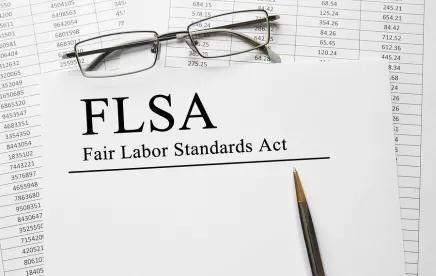On Tuesday, March 6, 2018, the U.S. Department of Labor (“DOL”) announced its launch of the Payroll Audit Independent Determination (PAID) Program (“PAID” or the “Program”) – aimed at increasing employers’ FLSA compliance and timely payment of back wages to employees. The Program, which will start with a six-month pilot period prior to evaluation and finalization, is explained in detail below.
What is the PAID Program’s Goal?
The Program’s goal is to increase compliance with the FLSA’s overtime and minimum wage requirements by providing employers the opportunity to self-audit and report inadvertent non-compliance without fear of litigation or penalties. The Program also hopes to expedite payment of back pay to affected employees and to cut down on litigation costs to employers, employees, and taxpayers.
Who Can Utilize the Program?
Any employer covered by the FLSA can utilize the Program. The FLSA covers essentially all employer/employee relationships.
How Does the Program Work?
Employers who choose to participate in the Program must follow the steps below:
- Review the Program’s compliance assistance materials, soon-to-be available on the DOL’s website, and submit a review certification.
- Self-audit overtime, minimum wage, and classification practices to identify potential non-compliance.
- Report the following to the DOL:
a. Potential violations;
b. Employees affected by each potential violation;
c. Timeframes in which employees were affected; and
d. Calculations of back wages owed to each employee for each potential violation. - Certify that non-complaint practices will be adjusted to avoid repeated future violations.
The DOL then evaluates the employer-provided information, possibly requesting supplemental information from the employer, and issues a summary of unpaid wages if it finds back wages are owed. At that time, the DOL will also issue Claim Releases to affected employees, which they must sign to receive payment.
Employers must then pay all back wages by the end of the next full pay period and provide the DOL with proof of payment.
Employers who self-report and cooperate with the DOL to remedy violations will receive safe harbor from monetary penalties and additional liquidated damages for such violations.
Important Points to Note About the Program
- Employers cannot use the Program to audit violations for which they have already received complaints from an employee’s representative or counsel or which they are already litigating in court, arbitration, or otherwise. Employers must also certify that they are not litigating or anticipating litigation regarding submitted potential violations
- Employers cannot use the Program to repeatedly audit the same violations. If a violation continues after its audit is completed, the employer can no longer benefit from the Program’s safe harbor.
- Employees are not required to accept Program back wages or sign Claims Releases. They retain their private rights of action against their employer if they choose not to sign Claims Releases.
- Claims Releases are narrowly tailored to the specific violation and time period specified.
- Participation in the Program does not waive the DOL’s right to conduct future investigations on new or repeat violations.


 />i
/>i

